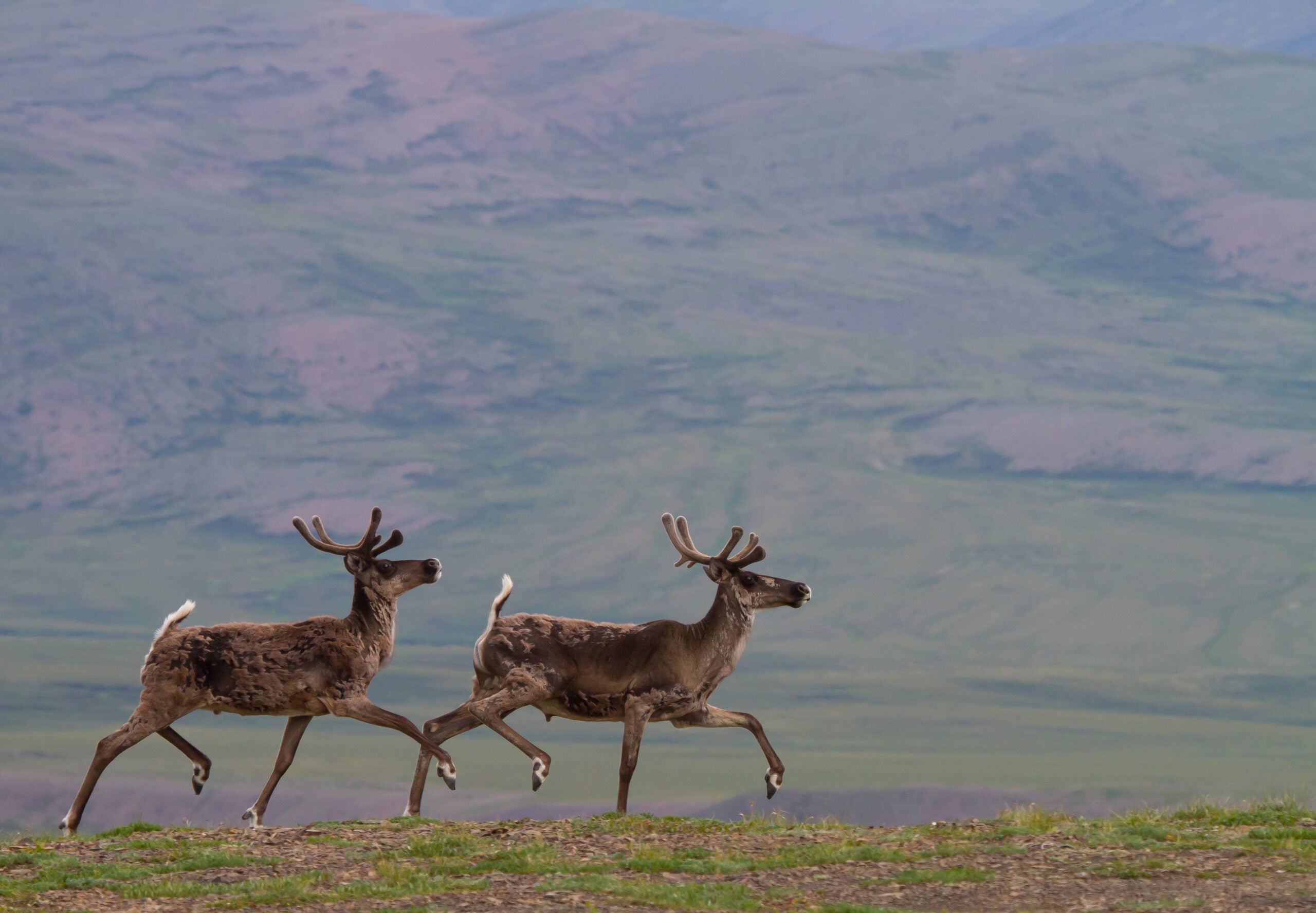Celebrate the Protection of Some of America's Greatest Wilderness
President proposes to put "The Sacred Place Where Life Begins" off limits to oil and gas drilling

This page was published 11 years ago. Find the latest on Earthjustice’s work.
Anyone who has ever stood in awe of a beautiful place, anyone who has ever felt humbled by the magnificence of nature, anyone who has ever been moved by the sight of an animal in the wild, and anyone who has ever wanted to save something precious — anything precious — should celebrate today. This is because yesterday, aboard Air Force One, the President announced a proposal to designate more than 12 million acres of the pristine Arctic National Wildlife Refuge as wilderness.
This proposal, if approved by Congress, would put oil and gas drilling and destruction off limits in a large swath of the Arctic Refuge. Watch the President’s video on this historic move to protect one of the planet’s wildest and most spectacular places.
Known as ‘The Sacred Place Where Life Begins’ to Alaska Native communities, this one of the planet’s last unspoilt places, with some of the most pristine wilderness humankind has ever witnessed, and it is part of the United States of America. Established in 1960 to save one of America’s most special places, the Arctic Refuge teems with majestic and wild life: polar bears, seals, caribou, peregrine falcons, golden eagles, moose, lynx, wolverines, American Black Bear, grizzly bears, and wolves. “Bird species from the Coastal Plain migrate to all 50 states of the country — meaning that no matter where you live, the Arctic National Wildlife Refuge is part of your landscape,” wrote White House advisors John Podesta and Mike Boots in a White House blog. Though many of us will never get a chance to see it in real life, like our other crown jewels such as Yellowstone and Yosemite, it is our duty to protect this unusual and wonderful place and all the rare life that resides there.
For decades, the oil industry has been lining up to drill and exploit this spectacular place, which would ruin it forever, not to mention further propel us toward even more costly and catastrophic climate change. In a rapidly developing and highly commercialized world, where everything seems to be on the table for corporations, it is deeply gratifying to know that there are some places too special for exploitation.
Now the ball is in Congress’ court, as any wilderness designation must go through Congress first for approval. Though oil and gas drilling has been prohibited in the Arctic Refuge since 1980, some in Congress responded as though someone snatched their pacifiers right out of their mouths.
This is more than a familiar situation in a couple of ways. First, any time any restrictions or limitations are placed whatsoever on the oil and gas industries, their friends in Congress shriek that the sky is falling.
Second, a look back in history recalls vehement opposition to the establishment of our revered National Parks, including Yellowstone, the Grand Canyon, Glacier, Grand Tetons, and many more. Time told all, and those opponents were forced to eat their words in addition to prospering greatly from the existence of those much-celebrated and much-frequented tourist destinations. Today, most of the entities and towns that opposed those National Parks now consider their proximity to the parks as their most valuable asset.
While many in Congress care more about their loyalties to industry than the future of their homeplaces, we hope that foresight and basic values prevail here. If you agree, call your member of Congress and tell him/her to approve this important wilderness designation.
Opened in 1978, our Alaska regional office works to safeguard public lands, waters, and wildlife from destructive oil and gas drilling, mining, and logging, and to protect the region's marine and coastal ecosystems.
Established in 1989, Earthjustice's Policy & Legislation team works with champions in Congress to craft legislation that supports and extends our legal gains.